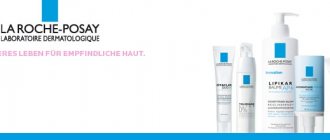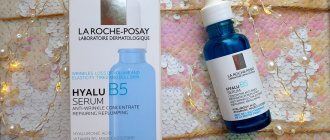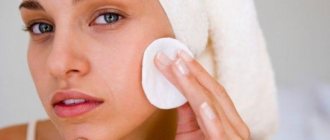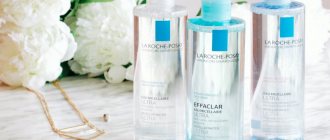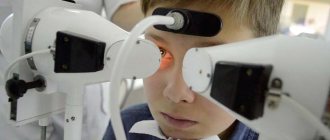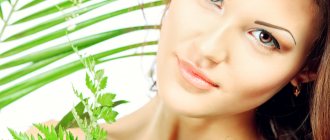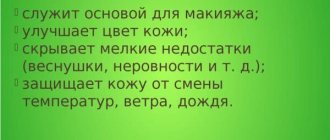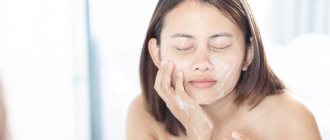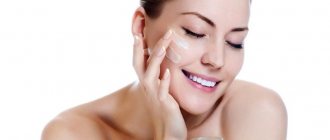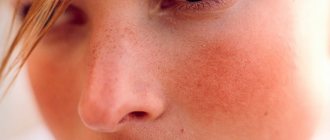What is rosacea?
In fact, rosacea is one of the manifestations of venous insufficiency in the small vessels of the facial skin . The main reason for its appearance is a violation of venous outflow. It can be caused by improper skin care, diseases of the vascular wall, hereditary characteristics, harmful substances entering the body with food, smoking, alcohol abuse and many other factors.
The most noticeable external manifestation of rosacea is the appearance of clearly visible spider veins protruding above the surface of the skin. They look like reddish or bluish formations, and the skin over them often peels off. These stars do not hurt, but can cause mild itching. Touching them is not painful.
Spider veins do not cause any serious complications and are not dangerous in themselves. But their presence is a symptom of serious disorders in the body that are not limited to the skin of the face. You can fight them, but it requires effort and patience on the part of the patient.
No couperose! — La Roche Posay Rosaliac XL Riche
Greetings again, Beautiful Beauticians!
Today I will tell you about my method of fighting rosacea. And La Roche Posay Rosaliac XL Riche
Description:
Changes in the skin occur under the influence of external factors: nutrition, climate, stress, environmental pollution.
Fragile blood vessels become more permeable and are involved in the inflammatory process. Redness of the skin of the face and neck appears. The complexion becomes uneven, and a burning and tingling sensation may occur. Rosaliac is the first treatment for skin prone to redness that restores long-lasting comfort and radiance. My opinion:
In general, this cream is intended for dry/very dry skin, and I have combination skin (prone to dry in winter).
I must say, I didn’t notice that the cream was intended for this type of skin, but after consulting a dermatologist, I found out that if the cream is not intended for your skin type, then it is quite possible to use it if it suits you (does not cause allergies, itching, etc. .). Fortunately, it suited me, and that makes me very happy. Now about the cream itself... I used it for about a month, but not every day. The cream itself has a greenish tint and an incomprehensible smell, has a greasy and not very pleasant consistency, at first I thought that it would tightly clog all my pores, but this did not happen (lo and behold!). It spreads over the face with difficulty, again due to the consistency, and gives a slight oily sheen to the skin; it also rolls into lumps if you overdo it even a little. Initially I had (and still have a little) rosacea. Cuperosis
is a vascular disease of the skin, in which spider veins and networks of dilated capillaries appear on it. This is a very unpleasant disease - constant redness and spider veins. I usually apply the cream at night, and in the morning I wake up with an unusually soft and smooth face, this is a huge plus for the cream. It soothes the skin very well, I “calm” reddened skin at night with this cream and in the morning the spider veins are gone. With frequent use, as I noticed, the spider veins disappear forever, but if you stop using them, they will return after 2 weeks. The cream nourishes and cares for the skin; during the period of frequent use, I had almost perfect skin. It will remove all dryness and flaking as if by hand. It protects well from frost, does not lie on the face as a “mask” and does not cause discomfort. It is quite economical, you don’t need very much of it on your face (because if you overdo it, everything will roll off). Skin condition. In the evening, before using the cream: (in the photo on the right there is this cream on the cheek)
Skin condition. In the morning, after using the cream:
Overall:
The cream has a greasy consistency and can clog pores.
It nourishes very well and makes the skin soft and soft. Well protects the skin from merciless frost. If applied incorrectly, it may form lumps. With frequent use, it can completely or partially solve the problem of redness/rosacea. Rating:
4+
Price:
approx. 800 rubles (in pharmacies)
Thank you for your attention, The most charming!
Increase
General principles of treatment
The fight against rosacea has much in common with the prevention of varicose veins of the lower extremities and internal organs, as well as hemorrhoids. It is necessary to reconsider your diet and pay more attention to foods containing vitamins A and E, as well as PP. And you need as little fatty and salty foods as possible. If there is such a need, you need to normalize your body weight.
Of the medicinal methods of treatment, the most important is taking vitamin complexes with rutin, vitamin PP, and ascorbic acid. They strengthen the vascular wall, preventing blood vessels from overflowing in the face. In addition, they are good at preventing swelling. The course of treatment can also include drugs that reduce blood viscosity to reduce the manifestations of venous stagnation.
We must not forget about local remedies - facial skin care is extremely important. It is necessary to exclude the influence of negative factors - exposure to low temperatures, excess humidity, and choose the right cleanser and rosacea cream. And, of course, to maintain the beauty and health of your face, you need to give up bad habits.
All about the treatment of rosacea
Author of the article: Lukasheva Natalya Nikolaevna, dermatologist-cosmetologist, pediatric dermatologist, trichologist
1. Are any creams/ointments effective in treating rosacea?
Currently, there are quite effective cosmetics that work on the problem of rosacea. As a rule, they contain components that strengthen the vascular wall, help restore the epidermal barrier, and also include anti-inflammatory components that block inflammatory reactions in the skin. These products are suitable for very sensitive skin and promote gentle care at all stages.
I would like to note such lines of cosmetics as products for sensitive skin: Cetaphil PRO Redness Control, Uriage Roseliane, La Roche-Posay Rosaliac. The effectiveness of these products depends on the severity of rosacea. But as basic care products for rosacea, they are definitely recommended.
In case of persistent facial redness, as a manifestation of the erythematotelangiectatic subtype of rosacea, it is necessary to prescribe dermatological treatment, which involves the use of drugs containing azelaic acid. In some cases, it may also be necessary to prescribe systemic therapy (doxycycline, vascular drugs, isotretinoin).
2. What cosmetological techniques are used to treat rosacea?
In case of rosacea, a course of microcurrent therapy is recommended in order to unload the microvasculature. The procedure is carried out in lymphatic drainage mode 2-3 times a week, for a course of up to 10 procedures. All patients with rosacea are prescribed cryotherapy (cryomassage with liquid nitrogen), which has an anti-inflammatory, vasoconstrictor, and antidemodic effect. The procedure is carried out 2-3 times a week, for a course of 10 procedures.
Light and laser techniques have proven themselves to be effective in the treatment of rosacea. These include the use of sources of incoherent intense light radiation (IPL therapy), diode, potassium titanyl phosphate, alexandrite, long-pulse neodymium aluminum-yttrium garnet lasers (Nd:YAG lasers). These techniques allow you to correct background redness in the facial area, as well as remove visible dilated capillaries.
Intense Pulse Light (IPL) - intense pulsed light - a technology for exposing integumentary tissues to high-intensity light, which is generated by a powerful xenon flash lamp emitting radiation in the range of 400 - 1200 nm. The use of special light filters allows you to cut off unnecessary wavelengths and, as a result, affect the skin with a strictly specified wave spectrum.
The action of IPL therapy is based on the principle of selective photothermolysis. Selective photothermolysis is a process of light exposure on the skin, in which the bulk of the optical energy is absorbed by a specific target structure (melanin, hemoglobin, water), and as a result, one or another biological effect develops. In rosacea, the target targets are hemoglobin and deoxyhemoglobin. The absorption of energy by the latter causes heating, damage and destruction of the target tissue: the blood vessel.
To remove pathologically altered vessels, 2 wavelength ranges are used: 530-650 nm (to remove superficially located vessels) and 900-1200 nm (to remove deep-lying vessels).
Contraindications to IPL therapy include:
- pregnancy,
- photosensitivity,
- intense tan,
- surgical interventions in the last 3 months in the area of the procedure,
- the use of photosensitizing drugs, systemic retinoids, anticoagulants, immunosuppressants,
- inflammatory skin diseases in the acute stage,
- active malignant diseases,
- eye diseases (glaucoma, cataracts),
- phototype according to Fitzpatrick V-VI,
- severe neurological and mental illnesses (epilepsy),
- autoimmune diseases.
Before the procedure, the patient fills out voluntary informed consent for the procedure. The skin in the procedure area is thoroughly cleansed. The patient's eyes are protected with special dark glasses. A contact medium is applied to the skin in the area of the procedure - a cooling gel that improves light transmission. Then the facial skin is treated sequentially with two passes in a checkerboard pattern using a special attachment that delivers pulsed flashes of light. After the procedure, the skin is treated with soothing agents containing dexaptenol.
The course of procedures is determined individually by a cosmetologist, but on average it is 4-6 procedures with intervals between procedures of 3-4 weeks. During the course of IPL therapy and for a month after it, exposure to active sun is contraindicated. The use of sunscreen is recommended between sessions.
3. What measures (lifestyle tips, skin care) can be recommended to all people to prevent rosacea?
People with manifestations of rosacea in their daily lives need to limit (and, if possible, completely eliminate) factors that contribute to redness of the facial skin. And first of all, this concerns ultraviolet radiation. It is undesirable to sunbathe in the open sun or visit a solarium. It is recommended to use sunscreens year-round (in the summer, when skiing - with a protection factor of spf 50+, shielding the skin with clothing (wide-brimmed hats, umbrellas, ski masks); in the cold season - products with a protection factor of spf 30+ We must remember that even in cloudy weather, ultraviolet rays pass through the clouds and have their negative effect, so the day cream must contain ultraviolet filters.
In hot weather, it is necessary to choose the right clothes from breathable, cotton fabrics to avoid general overheating of the body. In cold, frosty and windy weather, the use of protective cold creams is recommended.
The progression of rosacea is facilitated by regular visits to baths, saunas, and hot baths, so we recommend avoiding them. It is best to wash your face with warm-cool water; for washing, use a warm shower.
Stressful tension and emotional outbursts, unfortunately, also make a significant contribution to the deterioration of the skin condition with rosacea. If you are subject to frequent stress, you need to consult a neurologist, psychotherapist, or psychologist in order to relieve the stress on the nervous system.
Regarding diet. It is recommended to completely abstain from drinking alcoholic beverages. Food and drinks should be warm (not hot). You should limit your intake of spicy foods, chocolate, and citrus fruits. It is recommended to avoid aggressive cosmetic procedures (physical and chemical peels, dermabrasion, rubbing procedures, thermoactive masks, etc.).
Patients with rosacea are advised to take gentle skin care using gentle cleansing, moisturizing and photoprotective products designed for sensitive skin.
Make an appointment with a cosmetologist
To clarify the details, consult a qualified specialist at the Semeynaya clinic.
Single contact center
8 495 662-58-85
weekdays 8-21, weekends 9-21
To clarify prices for an appointment with a cosmetologist or other questions, follow the link below:
Dermatology
Consultation with a cosmetologist
Facial skin care
A separate section should be devoted to this topic, since proper facial care is the most important condition for its beauty and health. In fact, this is not as difficult as it seems at first glance, but there are several important points:
- exposure to low temperatures must be avoided. If you have rosacea, you should not wash your face with cold water, and before going outside at sub-zero temperatures, be sure to lubricate your face with a nourishing cream;
- You need to wash your face, apply nourishing and moisturizing creams and masks every day;
- It is necessary to use medicinal products in courses. It is important to choose them correctly from a cosmetologist .
These simple rules will help you reliably get rid of rosacea. There are many home remedies against spider veins that you can prepare yourself, but it is much safer to entrust your beauty to professional products, such as cosmetics from La Roche Pose.
